Top Tips on How to Avoid a Blocked Drain
- Author:by James Campbell
- Category: Home Maintenance
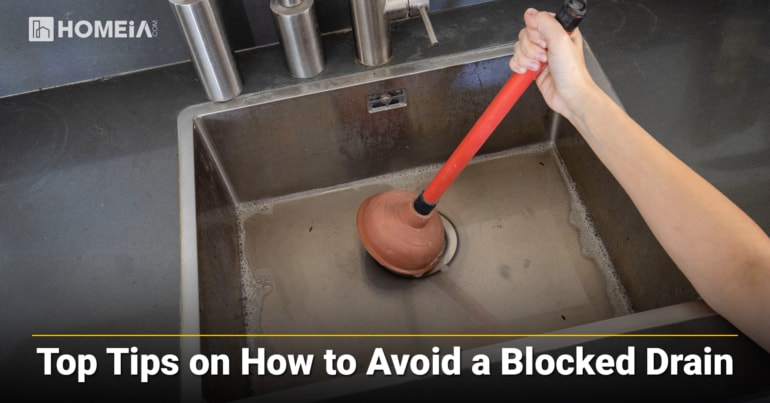
Are you tired of dealing with blocked drains in your home? Are home remedies no longer working to clear out the clogs and blockages?
If you’re in this situation, you know it can be frustrating. However, there are several easy things you can do to take care of this problem once and for all.
Many people experience clogged drains on a regular basis. Often, it leads to the need for a professional blocked drains expert to handle the situation.
However, if you’re sick of unclogging drains, you can use the tips below to avoid blocked drains so you have time to do other things around the house.
Table of Contents:
1. Try Using a Drain Strainer
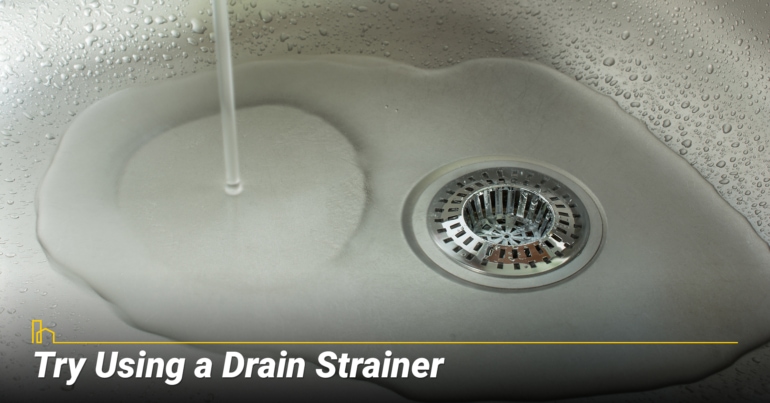
It might be surprising, but small pieces of food, hair and other debris are a significant cause of blocked drains. Thankfully, preventing those items from building up in the drain is relatively simple.
All you need to do is place a drain strainer in each of the drains. These are typically made of stainless steel and fit into the drainage opening. You can purchase drain strainers at hardware stores and other locations.
The basic idea is that small debris that enters the drain cannot go into the pipes. The strainer sits above the opening, so any food, dirt, and other debris doesn’t go farther into the drain.
Strainers in the kitchen and bathroom can seriously cut down on blocked drains. Strainers can also be used in the shower for soap scum, fallen hair and dirt that might block up the shower drain.
Place the strainers and you’ll see fewer clogs. Once you are using these devices, make sure to clean them regularly before replacing them over the drainage area.
The Best 10 Ways to Maintain Your House
Your house is most likely the most expensive purchase of your lifetime — and a safe haven that provides a hub for everyday activities, relaxation and making memories. It doesn’t remain in great shape without some effort, but with some loving care and an organized maintenance schedule, you can manage the upkeep without added stress…
2. Don’t Dispose of Grease in the Sink
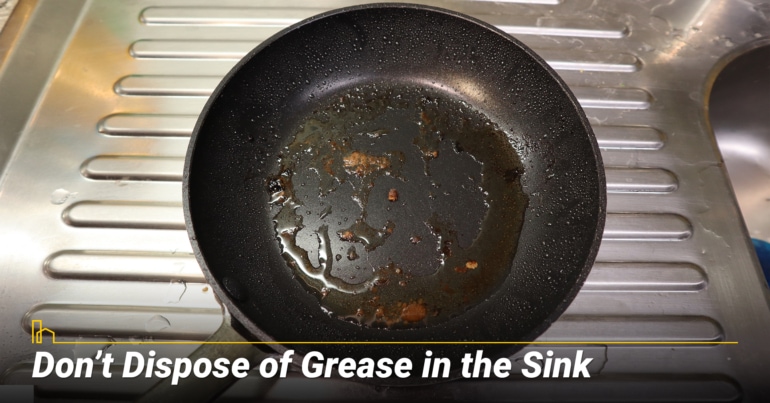
Many individuals aren’t aware that they shouldn’t place used cooking oil into the sink, but this can be a massive contributor to blocked drains.
Even cooking oil that isn’t solid when cold can still cause serious issues. The oil will start to stick to the inside of your kitchen pipes.
Once the oil is stuck on the pipe, it stays there. As you continue to dump oil into the sink, it creates a build-up of the substance that will make the drain slow and eventually prevent liquid from running through. Try to avoid letting any oil enter your drain.
Instead of tossing oil in the drain, try another method of disposing of it. Find a jar or can that you can add the oil to when you are finished cooking. You can continue to use it over several cooking sessions until it is full. Then take the container and add it to your trash bin.
Recommended for you
3. Use Cold Water with the Garbage Disposal
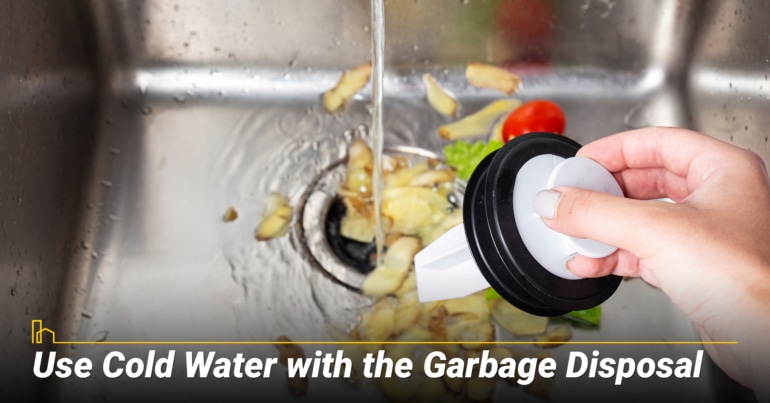
It’s not a good idea to dispose of food scraps by using the kitchen sink, but you might be in rare situations where you have no other choice. This is the reason that many people choose to install a garbage disposal unit that fits underneath the sink.
A garbage disposal is a unit that collects food bits and shreds them down into small pieces. If you choose to install a garbage disposal, waste will go through the drain much more smoothly than it would without one.
However, when you use the garbage disposal, you can add a step to the process for better results. When you turn on the garbage disposal, make sure you run cold water at the same time over the scraps of food. The water will push the scraps down through the pipes.
Keep in mind that oil can get into the garbage disposal. This can damage it and create the need for repairs. To avoid this, add some ice cubes on occasion when you use the disposal. The ice will cool the grease and scrape it out of the pipes.
12 Common Kitchen Layout Mistakes to Avoid
If you intend to stay in your home, but your kitchen doesn’t fit your lifestyle and add enjoyment to the time you spend there, it’s time for a renovation. Updating a kitchen takes a lot of planning, and it’s easy to overlook some crucial things—especially in the layout. Here’s a list of common kitchen layout mistakes and how to avoid them.
4. Avoid Flushing Non-Paper Items
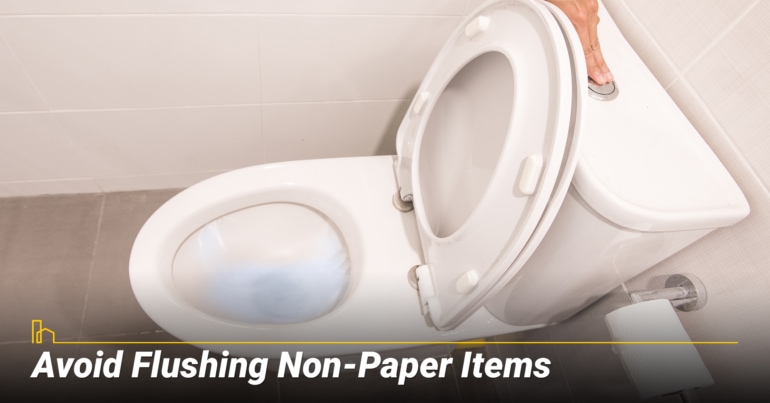
It can be tempting to flush other garbage when you use the toilet, but you shouldn’t do that. Other than toilet paper, make a habit of tossing things into the bin.
For instance, you might think it’s OK to flush feminine sanitary items. However, those should go into the garbage since they are made of cotton and plastic.
Choosing to flush items like this will create blocked pipes. However, the issue can become even worse than this. Products like this can damage the entire sewer system. This could result in the need to replace all of your drains.
Signs Something Has Gone Wrong with Your Electrical System
Fortunately, it’s not hard to make sure your electrical system stays in tip-top shape. Just pay attention once in a while and notice if there are any signs of trouble. Here’re 9 big signs that your electrical system has a problem—and what to do to keep the problem from growing even…
5. Add Boiling Water to Kitchen Drains
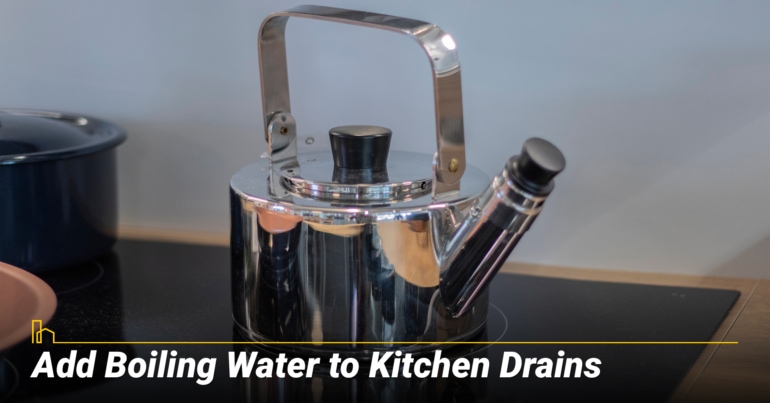
Even if you are cautious in the kitchen, some debris can still end up in the kitchen sink. This is an everyday occurrence, since many types of food waste are small and slippery. When these tiny bits of food and debris enter the sink, they can accumulate in the drain.
To avoid damage from these bits of trash, you can add a kettle full of boiling water to the drain. Doing this about once every week will help take debris and built-up grease down through the drain.
Make sure to be careful while pouring the water. Take it slow and avoid getting any liquid on you as it can cause burns.
Recommended for you
6. Undergo Regular Pipe Inspections
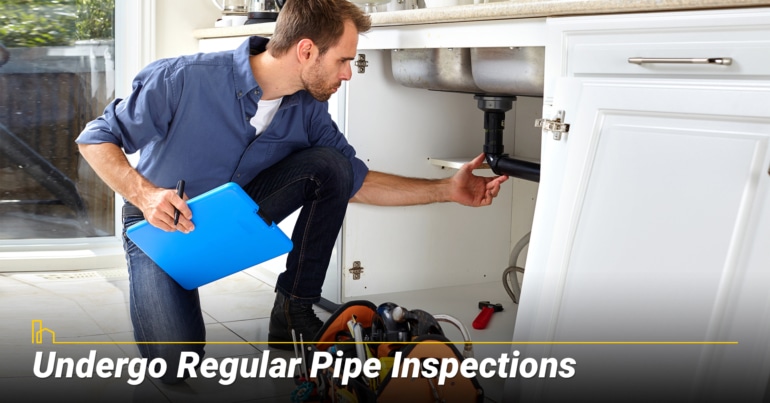
The best way to avoid blocked drains is to take proactive steps to prevent them. You should make an effort to bring in a professional who can check your drainage on a regular basis. Some of these problems may not be obvious to you, but a professional will uncover them in no time.
You might be concerned that this will cost a lot of money, but keep in mind that dealing with seriously blocked drains will cost much more. If nothing else, you should have plumbing check-ups done once every two to three years.
A licensed plumber can check all your pipes and see if any problems are present. They can also offer you advice and answer questions you might have. Book these and all services with a professional plumber who offers upfront pricing and the quality assistance you need.
How to Raise Your Home’s Value with Bathroom Renovations
Bathroom renovations are an excellent way to add value to your home. As with any remodeling project, however, you can’t expect to recoup the entire cost of the project when you sell. Remodel Magazine puts the expected value of a midrange bathroom redo at 64 percent of the price tag. If you should happen to sell the house in the future, you’ll…












































